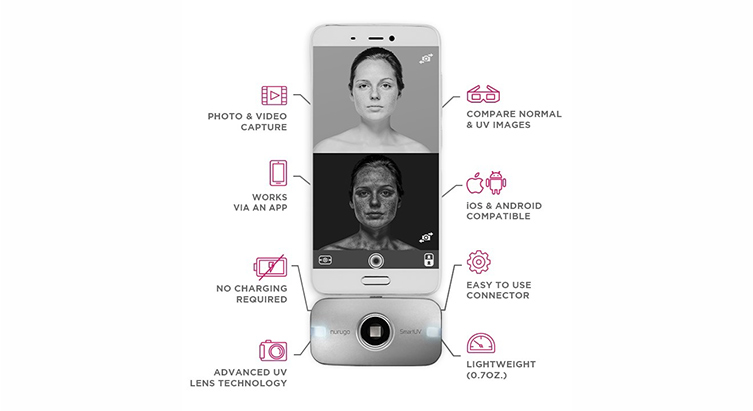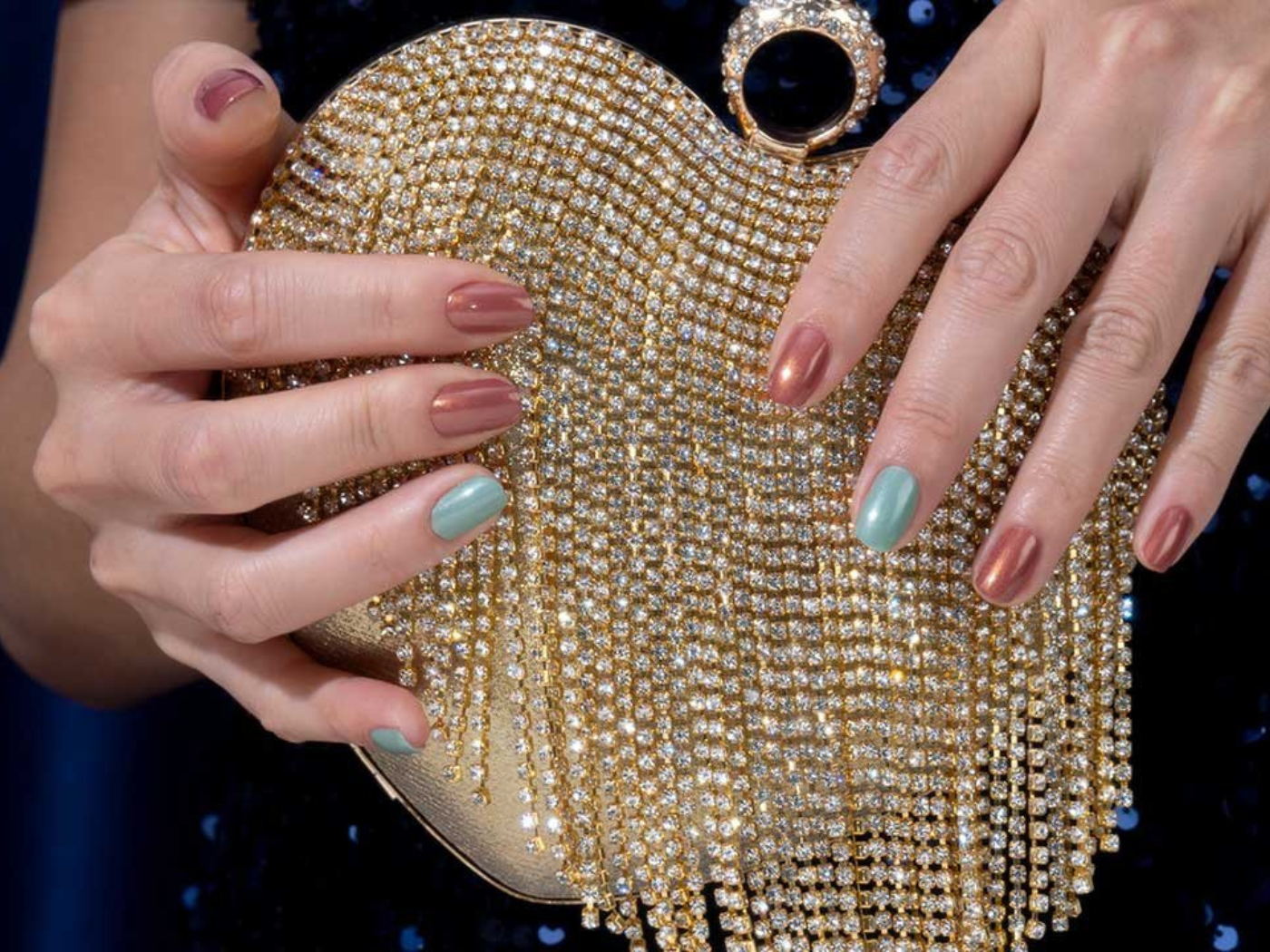The Consumer Electronics Show celebrated its 50th anniversary this month in Las Vegas from January 5 to January 8, and exceeded expectations with 3,800-plus exhibitors in more than 2.6 million net square feet of space within the Las Vegas Convention Center. From pollution monitoring, sleep enhancing apps and wearables to tracking devices, baby technology and beauty solutions, the event was chock-full of the latest and greatest in tech gadgets. But the real show stoppers were found in the Augmented Reality (AR) and Virtually Reality (VR) realms, taking center stage at the show. Case in point, the moment attendees walked through the doors of central hall within LVCC, a stadium of seats allowed them to experience the latest VR, from companies including Samsung and Oculus Rift. It is estimated, according to Perfect Corp’s Chief Executive Officer, Alice Chang, that by 2020 approximately 100 million consumers will use AR to shop.
Overall, beauty innovations did not disappoint at this year’s show, with solutions in nearly every corner of the show. Here, a recap of some of the best in beauty seen at CES.
HiMirror
HiMirror, a consumer electronics brand from New Kinpo Group, a Taiwanese global electronics company, showcased its smart mirror which was named a CES 2017 Innovation Awards Honoree in the Smart Home product category. Described as “the world’s first personal beauty and health consultant,” HiMirror assesses the skin’s condition including wrinkles, fine lines, complexion, dark spots, red spots, and pores so that users can measure skin improvements. After taking a picture, results quickly appear via a digital report, which includes snapshots of the user and highlights of their problem areas and general skin condition.
HiMirror’s back-end technology stores personal data; its “My Virtual Beauty Box” function allows products to be scanned and stored digitally so users can manage their effectiveness. The HiMirror Plus also comes with LED lights to simulate different lighting scenarios to help to better apply makeup.
HiMirror launched in the U.S. in October and is available for purchase through its website, himirror.com.
ModiFace
Other popular smart mirrors were display, including from AR trailblazer Modiface. Having created the first live 3D makeup mirror with Sephora in 2010, Modiface is now launching ModiFace Mirror Platform, a set of applications designed to detect skin features (wrinkles, spots, dryness), simulating skin improvements (as obtained with skin care products), simulated makeup and hair changes all on a user’s live video. This technology is available on several Smart Mirrors (such as the one featured in the carousel above) and will be coming to almost every hardware provider by the end of 2017. In addition to skin assessment and makeup simulation, ModiFace Mirror Platform detects distortions caused by the Mirror’s camera and compensates so that facial features look true-to-life. To view the Modiface Live app demo, visit: modiface.live.
VisioDerm by BIORELINE
Taking a slightly different direction in face skin detection is French company, BIORELINE, which showcased its VisioDerm skin analyzer device for beauty professionals. The hand-held probe is connected to a personal smartphone or computer and placed against skin to obtain accurate skin scans. Its 5 million pixel sensors are able to zoom in 50 times on an image and with visible and UV light, VisioDerm claims to give a complete analysis of the epidermis, including complexion, dermis and pores. The exclusive software program processes the images quickly to analyze, diagnose and recommend skin care treatments and products. Currently the VisioDerm system works exclusively with BIORELINE’s organic professional face and body care products. According to a representative, the probe is expected to be available in July.
Nurugo Smart UV
Ever wonder if your sunscreen is holding up? South Korean company, Nurugo, introduced what they were calling the world’s smartest and smallest portable UV camera. The Nurugo SmartUV camera attaches to smartphones and visually shows the effectiveness of sunscreen by capturing images in the UV light spectrum, which is invisible to the naked eye. Since UV light sits outside the visible light spectrum and does not have a color, images and video are provided in black and white. White shows where UV light is reflected, and black shows where it is absorbed or blocked. Still in Kickstarter phase, the device is available for pre-order for $95 in the “Earliest Bird” pledge and will be shipped to users in March 2017. It’s now available on Android devices with a micro USB adapter and on iPhone devices with a lighting adapter.
Sprimo Air Purifer
Another popular trend at CES was related to air monitoring and purification. Debuted as the “world’s smartest personal air purifier,” Sprimo is a portable and lightweight device that uses advanced sensors to analyze the air quality and polutants, adapt filtration and deliver clean air based on personal preferences or normal ranges. Beyond personal home use, representatives highlighted the potential opportunity for professional beauty and nail salons to efficiently and cost-effectively eliminate harmful odors in the air. Harold Han, Sprimo Labs Co-Founder and Chief Technology Officer, mentioned how he could envision the air purifier on the desk of every nail technician to help ensure safer air quality for workers and customers. Sprimo claims to be “50 times more effective than traditional competing purifiers for delivering clean, fresh air” and promises to “surround users with a purified bubble of clean, healthy air within seconds.” The accompanying app also allows users to set the fan speeds and schedule and check room air quality and history. It can also be set to learn personal schedules and preferences. Also on display was the Personal Air Monitor (PAM) dongle which plugs into smartphones and measures temperature, humidity and air quality in real time in the immediate breathing zone. It continuously monitors air quality and automatically turns a fan on to proper settings. Sprimo will be taking orders beginning in March. Initial orders are expected to ship by August with additional availability in Q4 2017. Price is slated to be between $300 and $399.
ORIG3N
Boston-based biotech company ORIG3N bills itself as a leader in regenerative medicine technology and consumer genetics assessments. Its various LIFEPROFILE series of assessment kits are aimed at gaining genetic insights and predispositions related to one’s fitness, nutrition and skin care. For example—and of particular interest to beauty geeks—is AURA kit, designed to provide a skin analysis on key aspects in skin aging: hydration, aging, elasticity and UV sensitivity. According to representatives, the DNA kits are easy to use; a standard cheek swab mailed in is all that’s needed. New to the LifeProfile portfolio and introduced at CES was BLISS, which assesses how genes impact ones behavior toward addiction, pain and anxiety, and BLOOM, which looks at childhood development in education, creativity, physical attributes and more. The LifeProfile results are also available as a free app so users can have immediate and ongoing access to results. AURA is available on the company’s website for $99; Bliss sells for $79.
Samsung C-Lab: S-Skin and Lumini
Looking into the future, CES hosted its Eureka Park Marketplace, an area dedicated to budding entrepreneurs and featuring everything from prototypes to startups. Creating quite a bit of beauty buzz were two potentially new products coming from the Samsung C-Lab.The C-Lab is an incubator program which gives employees the chance to freely suggest creative ideas and develop them further with co-workers. Of the 165 projects coming from the lab, two beauty related concepts being showcased at CES stood out: S-Skin and Lumini.
S-Skin is a skin care solution made up of a portable skin analyzing device and a microneedle patch. The device analyzes skin and provides automatic LED light therapy based. The built-in LED lights come in four colors: red to calm, soothe, tone and strengthen skin; yellow to reduce redness; green to reduce dark spots; and blue to destroy bacteria that produces acne. The microneedle patch help to enhance ingredient absorption and are color-changeable to help users know they are being applied correctly. To learn more,
Just down the aisle was C-Lab favorite, Lumini. The portable device scans skin and uses unique algorithms to analyze and detect skin concerns below the surface so users can proactively treat problem areas before they start. The device is used to look at wrinkles, pores, acne, redness, melasma and sebum. User-friendly analysis is provided via the accompanying app and future plans are to integrate cosmetic product recommendations to resolve perceived problems. To learn more,




